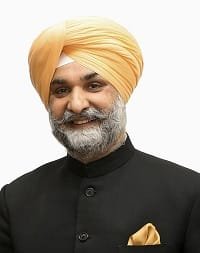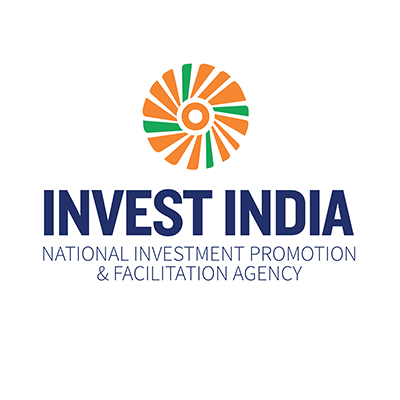Amb. Sandhu highlights 3 collaborations for COVID-19 vaccine
The US Development Finance Corporation (DFC) has announced a US$600 million financing facility for renewable energy projects with a permanent presence in India this year, said India’s Ambassador to the US, Taranjit Singh Sandhu.
“The DFC had recently approved US$350 million sustainable financings in the Indian financial services sector, health infrastructure, renewable energy, and food security space,” he pointed out.
The envoy also mentioned that there are at least three on-going collaborations between Indian and US companies and institutions to co-develop and produce a COVID-19 vaccine.
“American firm Gilead has entered into licensing agreements with seven Indian companies, including Cipla, Jubilant Sciences, Dr Reddy’s, et al. to manufacture Remdesivir and supply it to more than 127 countries,” Sandhu said.
He also highlighted India’s advantage of Indian drug manufacturers over their US counterpart as the Indians cost of the drug manufacturing is almost one-third lower.
Medicine manufacturing 33% cheaper in India than the US, he pointed out.
As such, India has fast become a key emerging market for medical devices and diagnostics, he told a special web conversation organized by The Associated Chambers of Commerce and Industry of India (ASSOCHAM) – ‘Energising Commercial Activity between India and the USA in the time of COVID-19’ on 4 July 2020.
“Healthcare, pharmaceutical, and life sciences research and cooperation will be a significant area of collaboration as providing equitable, affordable and timely access to health products and technologies will be a priority for both countries,” said the Ambassador.
“India has inherent strengths and has proved to be a reliable partner in pharmaceuticals in the past and during the COVID-19 crisis,” he underlined.
Referring to the increasing Strategic Energy Partnership (SEP), Sandhu informed that the total energy trade has increased to around US$20 billion in the last four years, touching US$8 billion in 2019.
“USA has become an essential source of oil and gas for India. Mutual investments in the energy sector have seen an upswing. Yet, there is tremendous potential, and opportunity as clean energy remains the core agenda of the SEP for collaboration in hydroelectric, solar, wind and power projects, development of smart power grids and clean energy storage systems,” the Ambassador stressed.
On trade and investment, the envoy shared that while bilateral trade has witnessed double-digit growth in the last three years and become more balanced, reaching US$150 billion, in 2019 with a 10% year on year growth, the real potential for our bilateral trade is yet to be achieved.
“Four sectors – energy, civil aircraft, defence, and higher education have contributed about US$70 billion to our economic relations,” he said.
On defence cooperation, the Ambassador informed that the collaboration in co-production and co-development of defence technologies and defence trade has touched US$21 billion.
The envoy expects the timely decision of increasing the FDI limit from 49% to 74% in the defence sector to attract US companies despite the present economic crunch.
The India-US trade has been witnessing a consistent year-on-year growth of 10-12%, added Balkrishna Goenka, former ASSOCHAM President and Chairman of the Welspun Group.
“There is potential to achieve growth between 18-20% in the post-COVID era. Strategic convergence and cooperation between India and the USA in the APAC region will also provide a boost to India-US trade in the coming years,” he said.
He also highlighted that the US duty structures on Indian products are unreasonably higher in comparison to the duties imposed on these products from other countries like Turkey, Japan and Korea.
“While other countries pay 5-10% duties, which seem justified, Indian products are attracting duties as high as 500%,” Goenka said while requesting the Ambassador to take up these issues with the US government for early resolution.
The Secretary-General of ASSOCHAM, Deepak Sood expressed confidence that the India-US trade can achieve the historical target of US$300 billion in the near future and result in more significant synergies in business, trade-investment, jobs, and people to people connect.
“To convert the opportunity into results, domestic manufacturers will have to up their ante, create both niche products and scale products with the right quality at the right price at the right time. The localization of supply chains is important, and India must move fast to produce components and move away from imports,” Sood said.
He explained that the US companies stand to benefit significantly if they invest and take advantage of the manufacturing ecosystem in India not only to meet the demands of both countries but also to collectively service the rest of the world
Summing up the conversation, Sood highlighted the technological prowess of India and how it has helped India emerge tall during the pandemic when many countries failed to provide the uptime, India stood by the world in pharmaceutical supplies as well.
“This will go a long way in building the confidence in India prove to the world that India and Indians have the ability,” Sood added.
Management consultancy Primus Partners India supported the session as the Knowledge Partner. #usibc #ukibc #defence #lockheedmartin #us #sidm #pharmaceuticals #investment #trade #exports #imports /fiinews.com










